
What Is Delta-8 THC (∆⁸-THC)?
With so many cannabinoids in cannabis, it's only a matter of time before they're all thoroughly researched and utilised. With unique effects and potential benefits, one such cannabinoid that's risen to prominence is ∆⁸-THC. While not as potent as the more traditional Δ⁹-THC, there's plenty to discover about delta-8 THC.
Cannabis is a chemically complex plant, containing an average of over 100 different cannabinoids and 300 other compounds of interest. There's certainly a lot to unpack when it comes to understanding our favourite herb.
When these cannabinoids are isolated and extracted, they provide a range of different effects and potential benefits, with two cannabinoids standing head and shoulders above the rest in terms of popularity. These are, of course, cannabidiol (CBD) and delta-9-tetrahydrocannabinol, more commonly known as THC.
However, what about delta-8? This cannabinoid is a close relative of the THC we are already acquainted with, but there are some key differences that set it apart. Read on to find out the basics on this intriguing cannabinoid.
What Is Delta-8 THC?
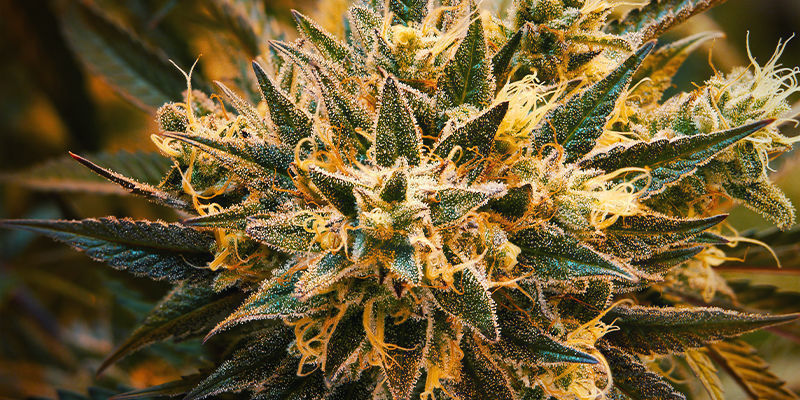
Produced in small quantities in the cannabis plant, delta-8 THC has seen a considerable surge in popularity due to its effects that are similar to THC, only not as potent. However, at present, the only way to experience delta-8 THC is through the use of specific cannabis concentrates, so it's not as freely available as other types of cannabis.
This, among other reasons, has led to delta-8 existing in a sort of legal grey area. Indeed, a heated debate over the legal implications of this cannabinoid has been building for some time, and thus its availability differs from country to country.
How Much THC Is In Delta-8 THC?
Delta-8 is its own kind of THC. As a rule of thumb, it is usually about 50% as potent as delta-9 THC. However, that's not to say that delta-8 THC doesn't provide effects; it just produces a different kind of high to more traditional cannabis.
How Is Delta-8 THC Made?
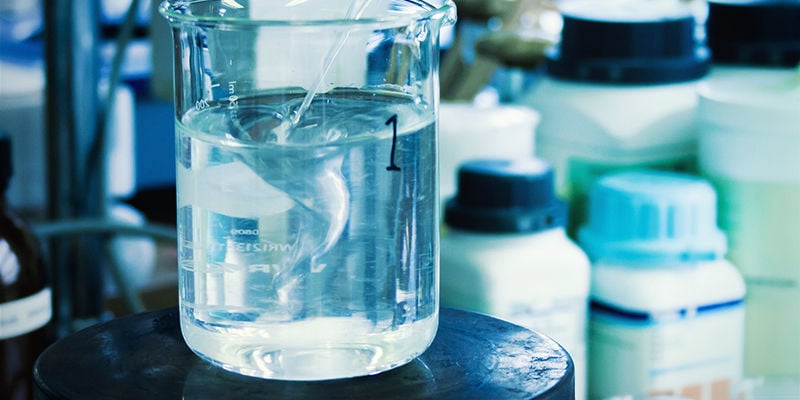
As delta-8 is naturally found in extremely small quantities in cannabis plants, often around <1% of the total cannabinoids, professional, high-tech extraction methods are utilised to isolate and extract delta-8 THC. Due to the equipment and expertise needed, the home production of delta-8 THC is an unfeasible practice, at least for the time being.
While extraction is often a long and time-consuming process, another popular way of creating delta-8 THC is through a procedure known as cannabinoid conversion. Like all cannabinoids, delta-8 THC begins life as CBGA (cannabigerolic acid), otherwise known as “the mother of all cannabinoids”.
CBGA changes throughout the plant's life cycle, evolving into every cannabinoid we know and love. Thanks to science, the cannabis plant can be manipulated in a lab setting to produce a 98% CBD isolate. From this CBD isolate, delta-8 THC can be formed.
Here’s how it’s done:
1. CBD Is Dissolved Using a Suitable Solvent
Unlike other cannabinoids, delta-8 THC can't be extracted with ethanol. Instead, a non-polar organic solvent like heptane is used to dissolve the CBD.
2. The Solvent Is Combined With Acid
Combining the heptane mixture with acids, such as hydrochloric acid, is the next part of creating delta-8 THC. The solution is then continually stirred for at least 18 hours and kept at a temperature of 100°C for best results. A heated stirring plate is often used for this step due to the constant mixing and consistent temperature required.
3. The Mixture Is Cleaned and Purified
The next step, and arguably the most important, is what is done to the mixture once fully combined. Due to the use of acids and solvents, there can be leftover residue, which is toxic if consumed. For this reason alone, it is important to clean and purify the delta-8 THC. This is done using a combination of distilled water and sodium bicarbonate, and will remove any impurities from the mixture.
4. Testing Delta-8 THC
The last process in creating delta-8 THC is testing the converted extract. Using techniques such as high-performance liquid chromatography (HPLC), manufacturers test the potency and ensure no unwanted chemicals remain in the extract.
What Is The Difference Between Delta-8 THC And Delta-9 THC?

Much like delta-9 THC, delta-8 THC has the same ability to bind to the body's endocannabinoid system, namely the CB1 and CB2 receptors. However, delta-8 THC has a different chemical makeup that results in different, more subtle effects. According to preliminary research and anecdotal claims, delta-8 THC is seen as almost the “light” version of delta-9, producing sleep-promoting and soothing effects without a high degree of intoxication.
Will Delta-8 THC Get You High?
While not as strong as its delta-9 counterpart, it is entirely possible to get high from delta-8 THC. Many who have tried it state that it produces a much more chilled state of mind. As a result, it is often favoured by those looking for support when feeling nervous or in times of pressure.
How Long Does Delta-8 THC Stay in Your System?
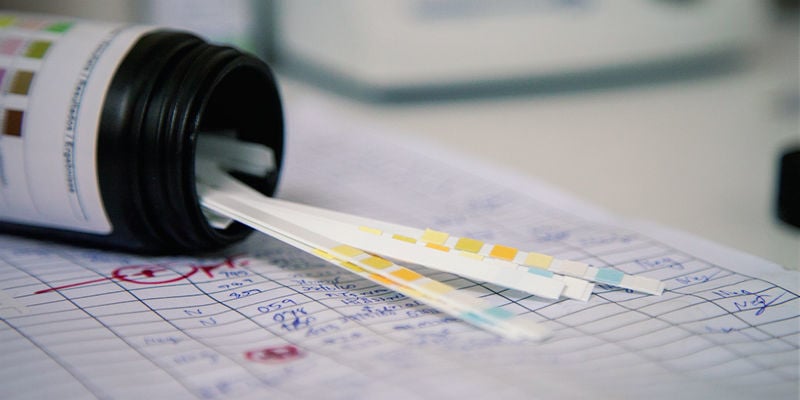
Once ingested, delta-8 THC can stay in a person's system for roughly two days after light or first-time use. However, heavier users will have traces in their system for up to around 30 days. It is even possible for traces to be found in hair follicles up to 90 days after use. While there is no specific test for delta-8, it may be detected in a standard drug test.
Is Delta-8 THC Safe?
As of today, delta-8 THC has not been evaluated or approved for consumption by the FDA. However, because of the nature of how it is created, the risks of using delta-8 THC fall mainly on the extraction process and the potentially harmful chemicals that may be left in if it hasn't been purified properly. This is why it is important to purchase from a reputable manufacturer if you are looking to experience delta-8 THC for yourself.
The Future of Delta-8 THC
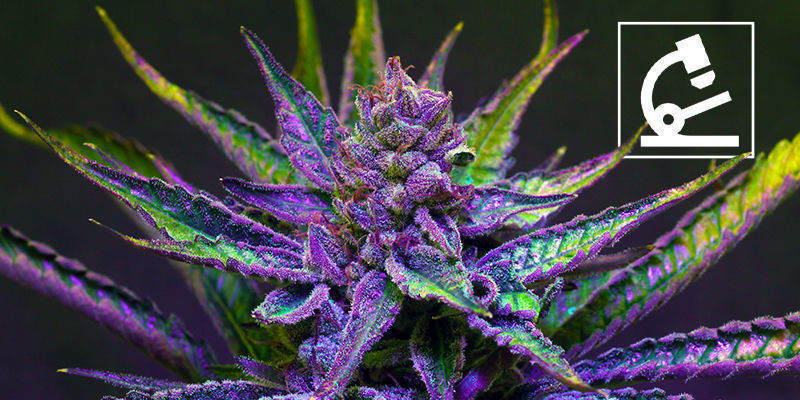
Fairly new to the world of cannabis and concentrates, the research and trials concerning delta-8 THC are still very much in their infancy. As it becomes more popular, it's almost guaranteed that new and exciting news will break in the future. Equally, we're seeing more and more cannabinoids being discovered and researched with promising results.
In the meantime, keep an eye on the Zamnesia blog for more news on this fascinating cannabinoid!
-
 7 min
4 April 2024
How To Test THC & CBD Levels In Cannabis Products
It's not always necessary to test your weed, but sometimes it is. And other times, you might just be curious to know exactly what your bud contains. Here, we look at two distinct tests that can...
7 min
4 April 2024
How To Test THC & CBD Levels In Cannabis Products
It's not always necessary to test your weed, but sometimes it is. And other times, you might just be curious to know exactly what your bud contains. Here, we look at two distinct tests that can...
-
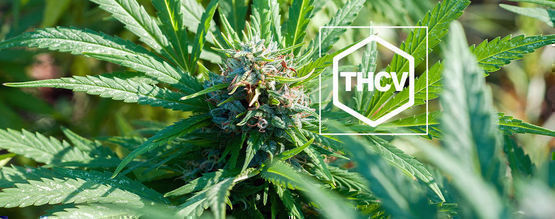 4 min
1 March 2024
Everything You Need To Know About THCV
Cannabis contains much more than just THC. THCV, for example, is a secondary cannabinoid that's attracting a lot of attention due to its potential wellness benefits. Keep reading to learn more...
4 min
1 March 2024
Everything You Need To Know About THCV
Cannabis contains much more than just THC. THCV, for example, is a secondary cannabinoid that's attracting a lot of attention due to its potential wellness benefits. Keep reading to learn more...
-
 7 min
9 March 2023
How Long Does THC Stay In Your System?
Cannabis can stay in your system long after your high has completely faded, meaning you can test positive on a drug test even if you haven't smoked in a while. We'll tell you about the different...
7 min
9 March 2023
How Long Does THC Stay In Your System?
Cannabis can stay in your system long after your high has completely faded, meaning you can test positive on a drug test even if you haven't smoked in a while. We'll tell you about the different...
-
 5 min
13 January 2022
What Are The Side Effects Of THC?
THC-rich cannabis is one of the most popular recreational drugs in the world, as well as one of the most sought-after holistic herbs. And while cannabis is often praised for being natural and...
5 min
13 January 2022
What Are The Side Effects Of THC?
THC-rich cannabis is one of the most popular recreational drugs in the world, as well as one of the most sought-after holistic herbs. And while cannabis is often praised for being natural and...





 United States
United States











